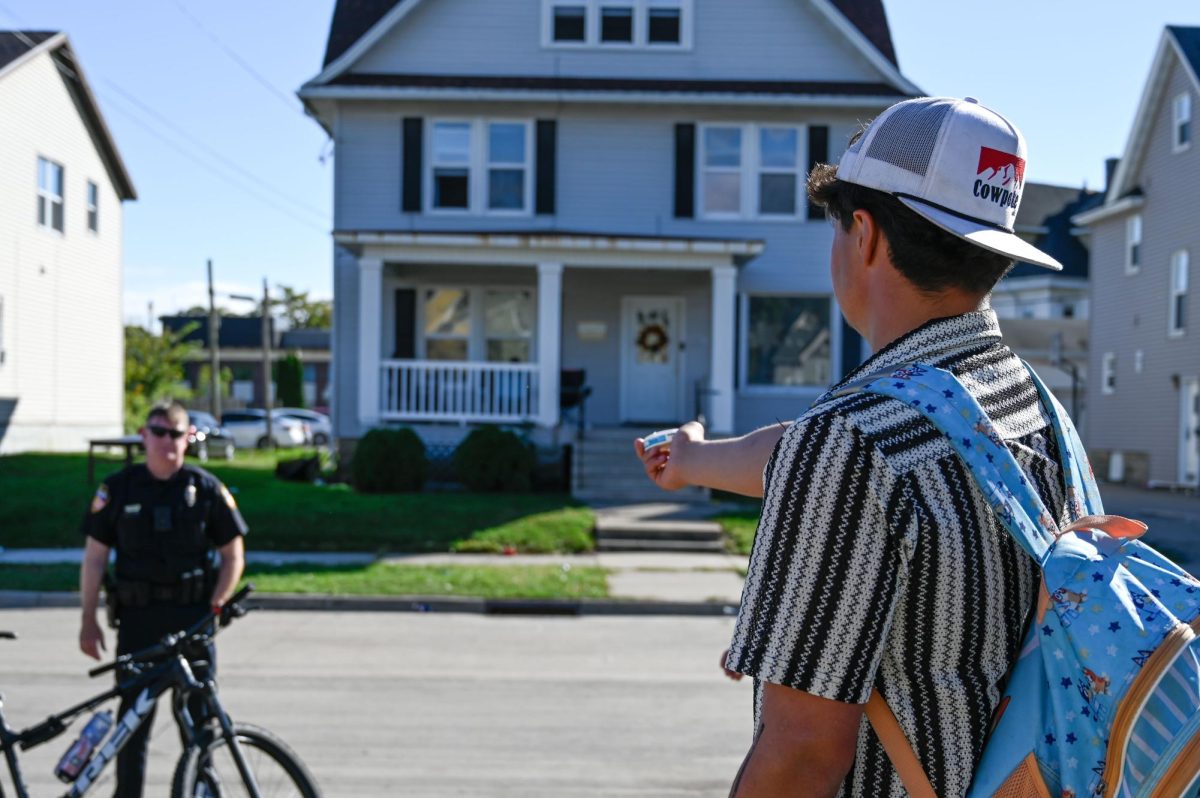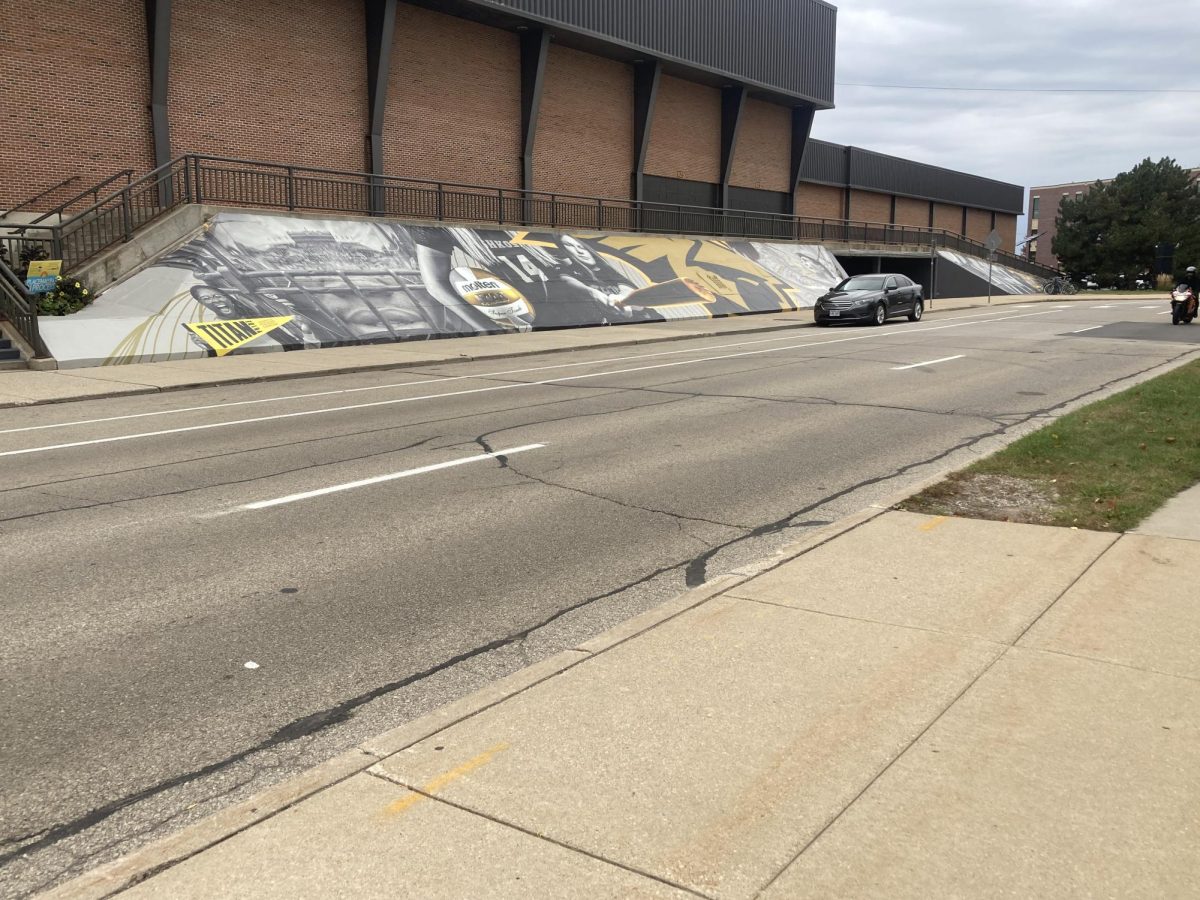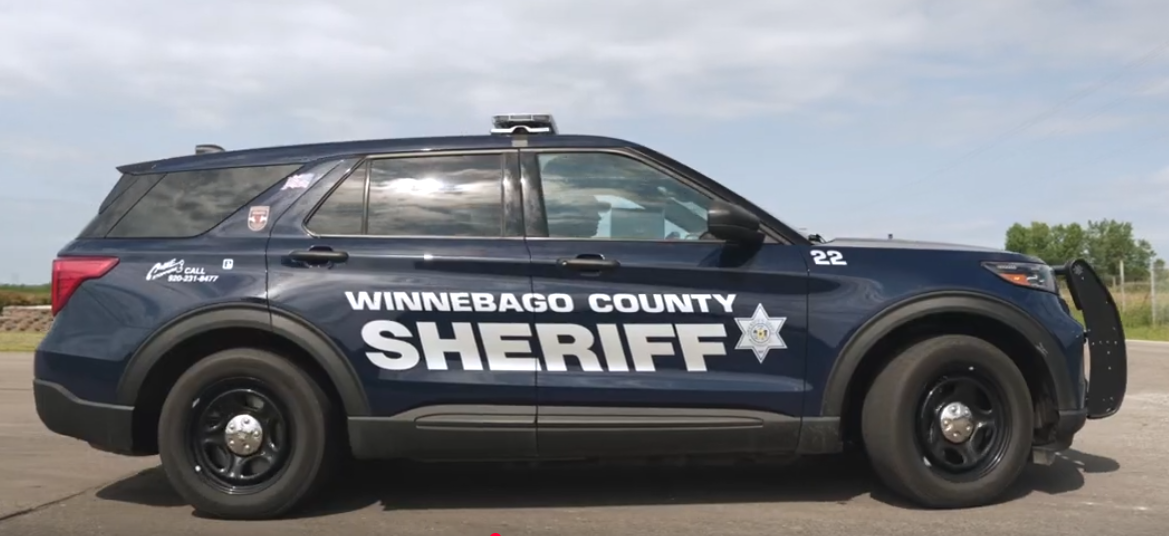In 2001, Lisa Sennholz adopted her daughter from the Philippines.
It was a joyous occasion for Sennholz; however, after spending some time in the area where she received her daughter there was something that she could not stop concerning herself with.
“I had just been making small talk with the orphanage director and I asked her a question and I had no idea it was going to change the course of my life, it was just a question,” Sennholz said. “I had said: ‘I see so many homeless children on the streets here and they’re not in orphanages, what’s happening with these children? What is their fate?’ So she at that time told me: ‘A lot of these children are going to end up in the child sex brothels down the road. They are going to be sold as sex slaves. They are going to be trafficked.’”
Bringing in an estimated $150.2 billion a year, according to the International Labour Organization, human trafficking is the second-largest criminal industry in the world. Cases of human trafficking have been recorded in all 50 states, and in Wisconsin all 72 counties have recorded cases.
By legal definition, the Trafficking Victims Protection Act (TVPA) of 2000 defines Human Trafficking as the recruitment, harboring, transporting, obtaining or maintaining of a person by means of force, fraud and coercion for the purpose of a commercial sex act – or – in which the person induced to perform such an act is under 18 years of age.
It is considered modern-day slavery.
After coming back to Wisconsin with her 15-month-old daughter, Sennholz said that despite not yet understanding how big of an issue human trafficking was at the time she was still concerned and wanted to do something about it.
Her concern lead her to travel and become a part of World Hope International in 2009 to travel to Cambodia for outreach.
Sennholz is now the founder and executive director of Damascus Road, a non-profit organization based in the Fox Valley area that was founded in 2013. According to their website, Damascus road is dedicated to fighting the evil of human trafficking and sexual exploitation and works solely with women.
According to the U.S. State Department, 80 percent of all human trafficking victims are female.
“The way it looked in the Philippines and Cambodia was you could drive down the street and you could see building after building after building where people are being sold at,” Sennholz said. “It’s in your face. It’s not in hiding. When I got back to the U.S. and learned that it was happening here too, it just looked different. It’s just hidden different here. It’s not in your face. For the most part it’s online. Unless you know where to go to purchase a human being in the U.S., it’s not in your face.”
Human Trafficking in Wisconsin
According to Winnebago County Sheriff John Matz, human trafficking happens in Wisconsin more often than people would think.
“On a weekly basis we are making arrests,” Matz said. “Somebody will come here and they will meet at a hotel thinking they’re gonna have sex with a 13-year-old boy and it’s actually us. That happens often. Very often.”
Matz said the main way the sheriff’s office goes about tracking individuals willing to pay for sex with an underage male or female is through internet sting operations, or what the sheriff’s office refers to as: internet crimes against children (ICAC).
Detectives will pose as an underage boy or girl on sites such as Backpage.com where there are sections dedicated to the buying and selling of human beings for sex.
Backpage.com, the Amazon.com of human trafficking, is responsible for 80 percent of all sex trafficking purchases and is currently in the middle of a lawsuit to stop human trafficking on the site in the ongoing case: Doe v. Backpage.com LLC.
So far in 2017, the Winnebago County Sheriff’s Office has made 14 ICAC arrests, four of which pertain to solicitation. In 2016, the total for the year was 22 total arrests with eight solicitations.
“There’s a demand, meaning that there are people that pay to patronize a prostitute,” Matz said. “I think we need to spend as much, or even more, time holding them accountable as we do the actual prostitute and the person that is trafficking them. It’s a crime.”
The FBI in partnership with local, state and federal law enforcement agencies and the National Center for Missing & Exploited Children (NCMEC) puts on an annual three-day human trafficking sting operations known as: “Operation Cross Country.” During the sting law enforcement officials have operations in hotels, truck stops and street corners.
In 2016, the operation resulted in the recovery of 82 sexually exploited juveniles and the arrests of 239 pimps. In an operation located in Milwaukee, two sisters, ages 16 and 17, were recovered from their mother who was their trafficker.
During the 2015 “Operation Cross Country” in Wisconsin, nine juveniles were recovered and 11 pimps arrested. More than 50 adults were also recovered. Wisconsin tied for third in the nation in the total number of juvenile trafficking victims recovered during the nationwide operation.
So far in the city of Oshkosh in 2017, the police department has had 48 prostitution investigations. Those investigations resulted in the arrests of 35 individuals for prostitution, 18 men for buying sex and four pimps.
“In February of 2017 we found a woman on Backpage with an ad that had been posted multiple times,” Oshkosh Police Chief Dean Smith said.
“We arranged a meeting with her and found that we were going to meet with her at a hotel in Neenah. When we got there we found a Chinese woman, an adult, who had just made it to the United States in New York. She showed up in Neenah. She was dropped off, she didn’t know where she was. We were able to rescue her from the situation she was in.”
In 2016, the Oshkosh Police Department made 112 arrests for prostitution. Out of the 112 arrests: 38 of those were men who were trying to buy sex, 12 men were arrested for pimping or trafficking charges and the remaining 62 arrests were for prostitution.
Smith said the Oshkosh Police Department partners with other police agencies in the Fox Valley to share their experiences and share what strategies work in stopping human traffickers and rescuing victims.
“We lead the Valley in these investigations,” Smith said. “By leading in the investigations we have done quite a few of these. We actually received a grant a few years back to begin online investigations of prostitution in human trafficking. We’re training other law enforcement agencies on how to do that. Interestingly enough I have just been contacted by the Department of Justice for Wisconsin and the Department of Criminal Investigations is now getting more involved in human trafficking enforcement. You should be seeing something in the state soon where they’re going to be assisting local jurisdictions in these investigations.”
With cases being reported all over Wisconsin it may be hard to see how the business can be so spread out, but Sennholz said the traffickers know what they are doing.
“A pimp is gonna use the I-94 and the I-41 corridor,” Sennholz said. “Let’s say he’s starting in Minneapolis. What he’ll do is he will start out with Backpage and he will figure out: ‘OK, we’re gonna spend two nights in this city and two nights in this city.’ He will then start advertising on Backpage days ahead. So he will say: ‘Friday and Saturday only in Menomonie these two girls.’ So he will start out in Minneapolis, he will hit Menomonie, he’ll hit Eau Claire and then he can decide if he wants to go over on 51. Which he would then do Chippewa Falls, Wausau and then he will decide if he wants to cut down and do Stevens Point and down to Madison. Or if he stays on 94 he will just go from Eau Claire to Tomah and down to Madison and over to Rockford, Illinois and down to Chicago. Then he will connect with the I-41 corridor. Then it will be Chicago, Milwaukee, Fond du Lac, Oshkosh, Neenah, Menasha, Appleton, Green Bay and then he can go whichever direction he wants from there. You can pretty much do the state from there.”
The Victims
According to the U.S. Department of Justice, the average age of entry into human trafficking is 15. In the United States alone 300,000 children become victims to human trafficking each year and 80 percent of all human trafficking cases have to do with prostitution.
“This isn’t every instance, but often times they will start off as a runaway,” Matz said. “They will typically run to a larger metropolitan area. Then somebody, and sometimes even at the homeless shelters and places that are supposed to be refuges are also where some people prey on those particular people who have no money, no ability to support themselves and they fall into that sex-trade kind of environment.”
Within 48 hours of leaving home, a teen runaway has a 1-3 chance of being approached by a human trafficker. By 72 hours that chance increases to 2-3.
Sennholz said in their outreach to human trafficking victims more often than not the victim has a history of sexual abuse which lead them into a life of human trafficking.
“We have a women right now who is 24-years-old from the Fox Valley,” Sennholz said. “Her father started abusing her at age 4. So if your childhood involves sexual abuse, that’s all you know. That may not be society’s norm, but that’s her norm. So the fact that she was abused from the time that she was four lead her down the path to where she is being trafficked. She started a drug habit to cover up the pain. It just becomes a cornucopia of problems.”
Sennholz said there is really no clear cut description for a human trafficking victim, she has seen all types of scenarios.
“There’s all different ways victims can be recruited,” Sennholz said. “Sometimes they’re recruited by family members. They can also be, almost in effect, I guess they are started out in the sex trade sometimes by their own parents who will trade them for drugs. We have cases of some of the women that we’re working with who their parents were addicts and they would literally trade the services of their child in trade for heroin or meth.”
Consistently ranking among the top five cities in the U.S. for the recovery of trafficked adolescents, Milwaukee is often considered “The Harvard of pimp school.” It is also where Exploit No More is located in hopes of improving the community.
Executive Director of Exploit No More Jarrett Luckett said although it is the majority, it is not only children with lives of abuse that fall victim to human trafficking. Children from all walks of life can become targets.
“Parents not giving a lot of attention to their kids because they’re working all the time, pressure to get good grades and be extremely successful in life, pressure with sports and so forth,” Luckett said. “With that brings about a whole different set of vulnerabilities where kids in that kind of context are starting to look for escapes.”
Sennholz said that thinking that only children from dysfunctional families in big cities are the only type of victims is a dangerous thought to have.
“People have this naive thought that, ‘I know it’s happening in the big cities,” Sennholz said. “They don’t think about the small towns that the girls are being recruited from or running from. That is one of the biggest myths that we are trying to dispel that yes, they are coming from these tiny little town and they are graduating from high school, some of them. They are girls that you would say, ‘Well I can’t believe she would fall victim to that.’ A lot of people think it’s just the runaway, throwaway kids but it’s not. We’re seeing other children being recruited from seemingly normal families. We’re seeing them being recruited more through social media.”
To put into context how different the situations are for children that become victims, Sennholz gave a real life account of a seemingly normal family that had this happen to them.
“We have a family that we worked with in 2011,” Sennholz said. “Mom was a school nurse and dad was an FBI agent. He was a counterterrorism agent so he was traveling a lot out of the country. He wasn’t home a whole lot. Their daughter ended up being trafficked while she was in high school. Right under their nose. I would say that most people would say that was a seemingly normal family. If it can happen to them it can happen to any family.”
Bringing in an estimated $150,000-$200,000 per child each year, Sennholz said traffickers know how to prey on the vulnerabilities of potential victims and exploit those vulnerabilities.
During her presentations, Sennholz will often times share a passage from the book “Pimpology: The 48 Laws of the Game” written by pimp Ken Ivy to showcase his tactics to aspiring pimps.
“Most prostitutes have low self-esteem for a reason,” the passage reads. “A pimp looks for that weakness… Then he uses those weaknesses to his advantage. Weakness is the best trait a person can find in someone they want to control. If you can’t find a weakness, you have to create one. You have to tear someone’s ego down to nothing before they will start looking to you for salvation. If a prostitute refuses, smack her and let her know you’re disappointed in her. Once you’re done humiliating her she will eventually come around to the idea. You just got to keep at it and eventually they will break.”
Damascus Road officials realize the psychological toll on victims being trafficked, which is why they offer in-prison victim advocate services. Posters are located in the Winnebago County Prison that are geared toward catching the attention of victims who can then request to see a Damascus Road victim advocate.
Kelly Olson is one of the Damascus Road volunteers that does victim advocate work. She said the mental damage that the victims receive from their time being trafficked by their pimp varies, but is very real.
“As you unpeel a lot of the layers of a human trafficking victim sometimes there’s relief and understanding, sometimes there’s shame and embarrassment because what they have had to do,” Olson said. “We are dealing with a lot of trauma. Complex trauma. In a lot of cases there’s a trauma bond similar to Stockholm syndrome that we see with their traffickers. Sometimes their traffickers are their spouses, or a parent, or a boyfriend. They have a really complex bond with them and can’t see it for the reality of what it is. So you have to work to help them realize it themselves.”
Smith said there is often a negative connotation when it comes to arresting a prostitute in stings. However, often times being arrested is the best thing that can happen to them.
“People think we just lock people up, well we do lock people up, but when we arrest folks we’re not just arresting them because they violated the law,” Smith said. “Many times we have the opportunity to get them the help that they need. We place them in a process where the D.A. can do diversion on them and get them counseling and get them the help that they need. Just because we take somebody into custody doesn’t mean they are going to prison. That is not the case. It’s the gateway to get them help.”
Sennholz said one of the most common myths she hears about human trafficking is that the victims being trafficked want to be there and they want to have the live that they have.
“Many people just look at it as, ‘Well they can just leave if they want to they don’t have to stay in it. They can leave anytime they want,’” Sennholz said. “That is a huge misconception because a lot of these adult women have been abused from the time they were a child or an adolescent and abuse becomes normal. If you had grown up being abused that is your norm. A lot of times they never really know what life without abuse is like. They have never experienced that.”
Olson said in modern pop culture there seems to be a sense of glorification of the life of a prostitute and their connection with their pimp.
An example Olson gave was of rapper Snoop Dogg. The former human trafficker appeared at the 2003 MTV Music Awards with two women dressed as prostitutes with leashes attached to their necks. He has also spoken about how he used to travel to major cities and sell his prostitutes to professional athletes and entertainers who were in the area.
“I really truly believe that there’s no one in the life who given other options would want to stay in the life of a prostitute,” Olson said. “ There is the misconception that there is a glamor or a sense of celebrity that comes with this and I would argue that that’s not the case.”
Sennholz said that often times being trafficked is the victim’s way of survival. They are trapped.
“Sex trafficking isn’t just money in exchange for sex,” Sennholz said. “Human trafficking includes that 15-year-old runaway who has no options right now. She’s trading what she has of value right now which is her body and she’s exchanging it for maybe a hamburger from McDonald’s or she’s exchanging it for a car ride to Wal-Mart to get some hygiene products. There are so many different layers. When someone says to us, ‘Well why don’t they just leave? They’re 23, they can just leave.’ If they could meet the girl that we’re working with and get inside her mind, how easy do you think it is for her being sexualy abused from the age of 4, now she’s 23, and you just look at her and say: ‘Well, just leave.’”
Prevention
With countless organization in existence with the purpose of preventing human trafficking, Sennholz said there are always ways for people to help. She said Damascus Road is always looking for volunteers willing to learn about the issue and willing to give their time and effort to prevent it and help victims.
Other than volunteering and getting educated on the subject, Luckett said there are small steps people can take that can turn into larger steps in the long run.
“The need for conversations about healthy sexuality, that has to happen,” Luckett said. “For a man, or a women, to sexually abuse a child, that is not OK. That is just not OK.”
With 1-7 men in the U.S. admitting to have paid for sex, Luckett said men need to become real with themselves when it comes to healthy sexuality.
“It’s so important for us (men) to learn how to get more vulnerable with each other and really look at ourselves and start addressing some of the different thoughts that we may have,” Luckett said. “There are survivors in sex trafficking where when they were going to a client, they were at a hotel or wherever, that as they were walking in this person is looking at pornograhy. A lot of times this pornography, watching it, leads to wanting to act it out.”
Smith said another important factor in preventing children from falling victim to human trafficking is for parents to let their children know that they can go to them for anything in life.
“To speak to you as a father, one of the things that was important to me with my daughter was making myself available,” Smith said.
“You have to create the environment where your children are willing to call you, not just when things are going really really good, but when they need you.”
Smith said when children do not have a strong foundation at home is when they could decide to runaway and get caught up in bad situations.
“When our kids are at their most vulnerable, that’s when they make the poorest decisions they could possible make,” Smith said. “So as a dad, as a parent, we need to have that conversation where: I’m gonna be there for you and I’m going to take care of you.”
Sennholz said stressing the importance of how dangerous vulnerabilities are in children is important because that is what traffickers look for and operate on.
“In this pimp culture often times pimps and traffickers, they will require the victims to call them ‘daddy,’” Sennholz said. “So we got to know this young girl. She had told us her story and how she became trafficked. Her story started when she was young and she said, ‘My dad use to be in my life, then one day he came to take me for the weekend and said, “I’m not gonna pick you up anymore. I’ve got a lot going on.” He just stopped seeing her and she became very vulnerable because she was looking for a father figure and became trafficked. When we met her she said, this was the first time I’ve ever heard this, she said: ‘It was awful, all the things that happened to me, but on the positive side at least I got to call someone daddy.’”








